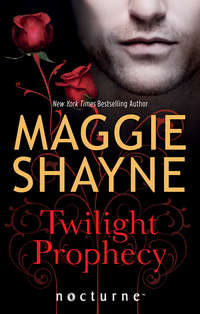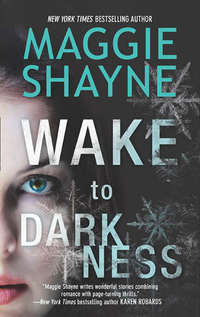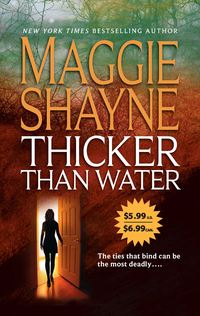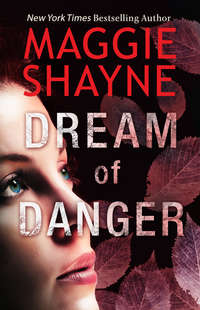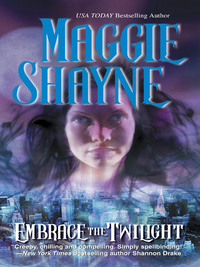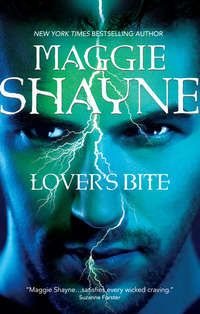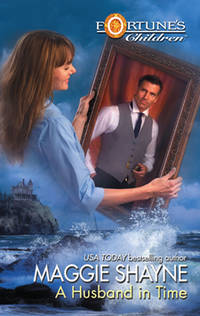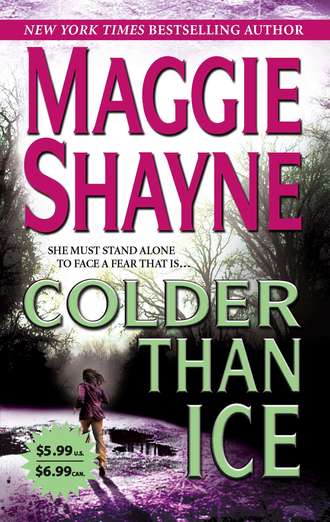
Полная версия
Colder Than Ice
“I like to run, Maude. It makes me strong.”
“And what does a thirty-five-year-old woman need with muscles, anyway?”
Beth grinned and trotted up the steps. “Thirty-six. And I need ’em to fight off all my suitors.”
Maude slapped her knee, chuckling to herself, and rose from the chair. “Tea is just off the burner. Still piping hot. You made good time this morning.” She leaned over the rickety tray table to pour from a china teapot into two matching cups. Antiques, white with pink rosebuds and gold edges. There was an old silver tray with a cover, and an empty hypodermic needle beside it.
“God, Maude, why don’t you get an insulin pump so you can stop sticking yourself three times a day like your body’s a pin cushion?”
Maude waved a hand at her. “I don’t trust machines. And if you could see what they charge for one of those gadgets…”
“You have insurance.”
“That’s no reason to throw good money away on nonsense. ‘The frivolous can waste more by the teaspoon than the frugal can bring home by the wheelbarrow.’”
“Is that one of your originals?”
She shrugged. “You’d have called the original sexist. So I put my own twist on it, just for you.”
“And I’ll bet you’ve been waiting for the opportunity to use it.”
Maude sent her a wink. Then she reached to the tray table and poured from a dewy pitcher into a tall glass. “Here’s a nice glass of cold water. Cool you down after all that ridiculous running.”
“Perfect.” Beth took the glass from the table and tipped it up, drinking half the refreshing, sweet water down before lowering herself into her customary seat, a second wicker chair that matched the first in age and wear, if not color or design.
“Cookie?” Maude offered.
“Chocolate chip?” Beth asked, leaning over the table to lift the tarnished silver lid from its platter.
“How did you know before you even looked?”
“I could smell them baking in my dreams last night.”
Maude chuckled, but then her smile died, and she shook her head. “A young woman ought to have something to dream about besides cookies.”
Taking a big bite, Beth said, “What else is there?”
But Maude didn’t join her in her teasing. “I’m serious, Beth. Life without friends is like pie without ice cream. You’ve lived in Blackberry for a year now, and yet you’ve barely made any friends at all.”
Beth tipped her head to one side, reminding herself that the old woman needed something to occupy her mind, and if worrying about her was the thing to do it, then fine. She would indulge her. Reaching across the table, she patted Maude’s hand. “I’ve made one friend, Maude. One very good friend.”
That got a smile out of Maude. She actually had to blink a little moisture from her eyes. “Oh, you. Now you’ve gone and made me misty.”
“Well, I mean it. I’m so glad you called me over here that first time.”
“Saw you walking by, then running by, day after day. Any fool could see you were lonely. Besides, I was curious to ask what it was you were running away from.” She took a sip of her tea. “Not that I’ve managed to get an answer to that question.”
“‘A woman without secrets has led far too boring a life,’” Beth said, repeating one of Maude’s own pearls of wisdom back to her.
“Score one for you.” Maude sighed, settling back in her chair. “You know, there are some nice people in Blackberry. You’re missing out on a lot by keeping so much to yourself.”
Here it comes, Beth thought.
“Take Jeffrey Manheim. Owns the coffee shop down on Main Street. Nicest unmarried man you could ever want to—”
She broke off there, looking up as a shiny white pickup truck pulled into her driveway. Beth shielded her eyes to try to make out who was inside, but already she was on guard. She didn’t recognize the man who got out of the truck and glanced their way. A younger man—maybe eighteen—got out from the passenger side and came around the truck to join him. Strangers. New in town.
This couldn’t be good.
Maude rose to her feet and stumbled a little as she started forward, so Beth got up as well, and grabbed hold of her forearm to steady her.
“Joshua?”
The man flashed a smile. “It’s me, Gram. It’s been way too long.” By the time he finished the sentence, he was mounting the steps, and then he swept Maude into his arms for a hug. Maude hesitated only slightly before returning it.
The man released her and stood back just a little to look her over. “You look wonderful, Gram. Just as pretty as ever.”
She smiled at him, and Beth could have sworn her cheeks went pink. “Well, I don’t know about that.”
“Bryan, get up here and say hello to your great-grandma.”
The boy joined them on the porch. It was obvious now he was the man’s son. He had the same milk-chocolate hair and the same jawline—as if it were etched in stone. But there was a brooding quality about him. He didn’t stand quite straight, didn’t meet his father’s eyes—or Maude’s, either, for that matter—and he didn’t look happy to be there. He kept slanting sideways glances at Beth.
She really should leave, she thought, as the boy took his hands from his jeans pockets long enough to give the old woman a halfhearted hug. “Hello, Grandma.”
“My, my,” Maude said. “What a fine young man you have here, Joshua.”
“He sure is,” Joshua said. “Gram, aren’t you going to introduce us to your friend?”
“Oh, of course. Where are my manners? Beth, this is my grandson, Joshua, and his boy Bryan. Boys, this is Beth Slocum. She’s a good, good friend to me. You be sure you treat her right.”
Joshua turned to face her fully for the first time, extending a hand to close it around hers. He met her eyes, and then something changed in his face. The smile seemed to freeze in place, and he looked into her eyes so intently it made her squirm. He looked stunned, shocked, and maybe there was a hint of recognition amid all the other things swimming in his eyes. It worried her.
Swallowing hard, she tugged her hand, but he didn’t let it go. “Um…It’s nice to meet you,” she said, wishing like hell that she could read his mind as she tugged her hand a little harder.
He blinked, glanced down at their hands, and let go quickly. “Sorry about that. You…remind me of someone.”
“Really? Who?”
His eyes were still dancing over her face. My God, she thought they might even be dampening. What the hell was with this guy? “Never mind,” he said. “It’s not important.” He tore his gaze from hers and looked at his son. “Bryan, say hello to Miss Slocum.”
Bryan looked at her. “Hi.” Then he turned to his father. “I’m going to get my MP3 player out of the truck.” He turned on his heel and marched back down the steps to the truck, where he took a few suitcases and duffels from the back.
“He’s not happy to be here,” Beth said.
“He’s had a tough year,” the stranger explained. “His mother and stepfather were killed over the summer. Plane crash. Then I had to uproot him from the West Coast and move him to Manhattan. He’s not dealing well.”
Those words wrapped themselves around Beth’s heart and squeezed. “His entire life has been stripped away from him,” she said, her throat tightening. “There’s no way to deal well with something like that.”
Josh was looking at her again. “Sounds like the voice of experience.”
She shrugged and lowered her eyes. His were too intense. Too filled with something she couldn’t name, and too intent on probing, on digging into her soul.
To change the subject, she said, “Maude, I always assumed you and Sam didn’t have any children.”
“Now why would you assume that?” Maude asked, fussing with the sleeve of her blouse.
“I don’t know. You never mentioned any kids, and there were no pictures around the house.”
“I really do need to get some photos put up,” she said, as if that explained everything perfectly.
Beth glanced at Josh, saw the way he was watching Maude, watching her responses to Maude’s explanations. He looked a little nervous.
“There was a death in your family over the summer, and you never said a word?” Beth asked.
Maude blinked. “Well, the family’s so estranged, you know, I never even heard about Bryan’s mother until a week ago, when Josh phoned me.”
“Kathy kind of cut my side of the family off after the divorce,” Joshua said.
Beth nodded as if it made perfect sense, when in fact it made none.
“Honestly, none of that matters,” Maude said. “All that matters is that they’re here now. Come from Manhattan to spend some time with me.”
“That’s nice, Maude.” Beth watched the boy, felt the pain coming off him in waves. She loved kids and felt an empathy for this one. Maybe because she, too, had been stripped of everything in her life. “Is he still in high school?” she asked.
“This is his senior year.” Joshua looked guilty now. “But I could barely get him to go when the semester started. He hated everything about Manhattan, but especially going to school there.”
“So what are you going to do?”
He shrugged, then faced her. “This parenting thing is like rocket science to me. I’m damned if I know what to do with him.”
“Beth can help with that,” Maude said. “She’s a teacher. You two sit down and chat. I’m going to get more cookies.” She went through the door and into the house without another word. The screen door banged.
Josh said, “So you’re a teacher?”
“I used to be.”
Josh sat in one of the wicker chairs, waving her to the other one. She glanced toward the young man, but he was sitting on the tailgate now, with headphones on.
“So why did you stop?”
She sent him a quick look. Was he a little too interested in her past? Or just being polite? “Needed a break. I still tutor, though.”
“Really?”
She nodded. “So how long are you going to be here?” she asked, turning the tables by asking questions rather than answering them. It was a skill she’d perfected over the past year.
“To be honest, I don’t know. It depends on a lot of things.”
He had a way of answering a question without revealing a thing. She recognized the tactic, because it was another one she’d grown deft at employing.
“Why is it Maude’s never mentioned you?”
He shrugged. “There’s been a rift in the family.” Then he met her eyes. “It’s kind of personal.”
“Sorry.”
“It’s not a problem.” He looked toward his son again. “I wish I knew what to do about Bryan.”
“I could talk to him…if you want.”
He looked at her as if surprised. “Do you have kids, Beth?”
Jesus. The innocent question knocked the wind out of her. She tried not to let it show in her face, turning away quickly, just as Maude called for Joshua to come help her for a minute.
“Did I say something wrong?”
“Why don’t you go help Maude with those cookies? And tell her I’ll see her in the morning.”
Beth walked down the steps, but she didn’t take the flagstone path. She went out the driveway, pausing by the pickup to tie her shoe and pull herself together. It wasn’t Joshua’s fault, she told herself. He couldn’t possibly know her chance to raise her only child had been stolen from her because of some toy soldier with an itchy trigger finger eighteen years ago.
When she rose it was to see Bryan staring at her. She glanced back toward the porch. Joshua had gone inside. The porch was empty.
Bryan had stacked suitcases on the pickup’s tailgate, though it was completely unnecessary. “Don’t worry, my father has that effect on a lot of people,” he said.
She looked at him, then allowed a smile as she realized he’d witnessed her reaction to Joshua’s question, though he probably hadn’t heard the dialogue. “Then it’s not just me?” she asked.
“Nope.”
“That’s good to know.” She rolled her eyes and saw Bryan’s smile turn from polite to amused. “Your dad tells me you’re in your senior year.”
“Yeah. But I’m taking a semester off.”
She nodded. “What do you still need to graduate?”
“History, Spanish Four, English Twelve.”
Beth smiled a little. “I used to teach English Eleven and Twelve.”
“Used to? What, you don’t anymore?”
“I’m taking a semester off.”
He smiled at her, his eyes, and interest, sincere.
“Actually, more like a few semesters. I still tutor, though. Let me know if you want to get those English credits out of the way while you’re in town. Give me an hour a day and I’ll have you ready for the final by Christmas.”
“I doubt we’ll be here that long.”
“Then give me two hours a day and make it Thanksgiving.”
He looked at her. “You know, it’s actually not all that bad an idea.”
She liked Bryan, she decided. She liked him a lot. Dawn would like him, too, if she were here. “Well, it’s up to you. I’m not pushing. And it would be tough on limited time. You’d have to be up for a challenge.”
“English is my best subject. How much do you charge?”
“What are you, kidding? You’re Maude’s great-grandson.”
“I don’t want a free ride.”
“Well, we can work something out, then. Maybe you could help me with a few chores?”
He nodded. “Okay. Sounds good.”
She smiled, pleasantly surprised. “You mean we’re on?”
“We’re on,” he said, extending a hand.
She shook on it, feeling buoyant and knowing why. She could help this kid. And he was going to let her. “We can start tomorrow. My place at noon. Maude can tell you where.”
“Great. See you then.”
“You’ll see me sooner.” She jogged down the driveway, turned left onto the lane, and fell into an easy rhythm.
She didn’t think she liked the man. Then again, she didn’t like any man. She didn’t trust them. But she liked his son. Maybe that was because looking at all the grief and loss in the boy’s eyes was like looking into a mirror. Or maybe it was because she knew that no matter how much the people in his life would like him to “get over it” there was no such thing. He could deny it, defy it, or learn to live with it. But he couldn’t get over it.
God knew she never had.
Mordecai had set himself up in one of the seven perfect Victorian homes situated in a neighborhood halfway between the towns of Blackberry and Pinedale. The houses had been purchased by some brilliant entrepreneur twenty-odd years ago, according to Mordecai’s research—he didn’t believe in going anywhere without all the information. The houses were rented out to wealthy families as vacation homes in the summer and to foliage-seeking tourists in the fall. In the winter, the skiing enthusiasts took over, and from February through March, they were inhabited by folks in town for the maple syrup season, and all the festivals and events it brought. In April the houses were closed for upkeep.
The others were all occupied. This one should have been, too—by Oliver Abercrombie, who’d made his reservations six months in advance. Unfortunately for the late Mr. Abercrombie, he was the only tenant without an immediate family, or anyone else close enough to miss him right away.
Mordecai had also learned that the school districts of the two tiny towns had merged a decade back, when the population of students had outgrown their buildings and the cost of educating them had outgrown the towns’ respective tax bases. Now the Pinedale-Blackberry Central School System had its elementary building in Pinedale and its high school in Blackberry. The towns were eight miles apart, and this hamlet—which wasn’t a town at all, but was called Bonnie Brook by the locals—was halfway between the two.
Lizzie was a teacher. He expected to find her working in one of the schools. So getting into the school system would be his first order of business.
This town was too quiet, he thought as he drove. It gave the voices too much silence in which to operate. When Mordecai was surrounded by noise and activity and people, they mostly kept quiet. But here, where the only sounds at night were the creaking of the old house and the gentle rustling of the October wind in the drying leaves…here they almost never went silent.
They were whispering now, in the background of his thoughts as he drove slowly along the winding, narrow roads, among the Day-Glo yellow of the poplar trees. Whispering…
She’s here, somewhere.
You’re close, Mordecai. You’re very close.
She was supposed to burn in the fire, you know. Eighteen years ago, when the government raided your compound and all those young women died. She was supposed to die with them.
He frowned, and said aloud, “Maybe I was supposed to die with them, too.”
You know you can’t die without leaving an heir, Mordecai.
You need a child, someone to carry on your gifts, your work.
He sighed, disappointed anew that his own biological daughter, his and Lizzie’s, had not turned out to be the one. Spirit had rejected her. Still, he loved her, in his way. He had set her free because of that love. But he yearned for another, his heir. Perhaps he would find that heir here.
He turned the car’s steering wheel, leaving the poplar-lined lane for one that wound and twisted between rolling meadows, dotted by fat, slow-chewing Holsteins with swollen udders and huge eyes.
He saw a woman running, jogging, along the road’s shoulder.
She wore maroon warmup pants with a thin white stripe up the sides, and a white tank top that fit her like a second skin. The jacket that matched the pants was knotted around her waist, and her blond ponytail bounced with every step she took.
That hair…
“Lizzie?” he whispered, slowing the car to a crawl so he could get a good look at her when he drove by. But there was something decidedly un-Lizzie-like about this woman. The squared shoulders. The pumping of her clenched fists. The way she held her head, chin high. Her stride was powerful, almost aggressive.
Slowly, he eased the car past her, then looked into the side mirror so he could see her face. But she’d stopped, was bending now, tying her shoe.
Go on, Mordecai. Keep driving. You have a date to keep. This one can wait.
The guides were right, he thought with a sigh. Besides, this wasn’t his Lizzie. His Lizzie was insecure, cowering and needy. And he was here for more than just Lizzie. He was here, he suspected, because this was where the heir would be found.
He drove the rest of the way to the high school, and waved to the woman who was waiting outside as he pulled into a vacant parking slot. Then he tipped the rearview mirror down to check his appearance.
Coke-bottle-thick glasses made his eyes appear huge, and emphasized the green of the colored contacts. The toupee looked real enough, mostly because few people would wear a hairpiece that was thick, black and mussed. He’d had it custom made. His new jet-black goatee was trimmed to a point at his chin and accompanied by a matching moustache that connected to it, bracketing his mouth. The new Oliver Abercrombie didn’t resemble the Mordecai Young of eighteen years ago, with his long mink hair and thin layer of stubble. Back then he had looked the way most westerners imagined Jesus Christ had looked. He didn’t resemble his more recent persona, Nathan Z, who’d been utterly bald, with striking brown eyes and a clean shaven face, either. He didn’t think Beth herself would have recognized him today, even had she bumped into him on the streets of Blackberry.
That was the way he wanted it. For now. She mustn’t know he had found her, not until he was ready.
He got out of his car, and Nancy Stillwater came limping toward him from the school’s main entrance, smiling. The smile put creases into her plump face. “Hello, Oliver,” she said, pushing dull brown hair, with a few gray strands, behind her ears.
“Ahh, Nancy. You are a vision. How is your day going?”
“Not too badly, so far. The new textbooks I’ve been waiting for finally came in.”
“Wonderful. Are they as good as you’d expected them to be?”
“Better. Even my students approve. So where are we having lunch?” she asked, lifting the basket she had, no doubt, taken great pains to fill.
“Anywhere you like,” he said, taking the basket from her. “It’s such a nice day for a picnic.”
“It really is. We won’t have too many more like this.”
“No, we won’t.”
“There are picnic tables this way.” She actually took his arm as she led him around the building, either because she was attracted to him and wanted to touch him, or because her bad leg was bothering her. The limp was considerably worse today than it had been yesterday, when he’d met her while applying for a job as a substitute teacher at the high school.
His false credentials had impressed the office staff, and by the time they got around to checking them out, his work here would be done. After all, his claims put him far above what was required of substitute teachers.
His résumé ought to put him at the top of the list, if they even had a list.
List or no list, you will be the one they call. We’ll see to that.
You have to stop doubting us, Mordecai.
Yes, stop doubting us. All is in place. All we need now is for one of the regular teachers to get too sick to come in to work.
“Here we are,” Nancy said, as they walked into a courtyard with round concrete tables, benches and planters situated every where. “This spot’s reserved for staff and seniors. And the staff know when the seniors have their lunch period,” she added with a smile. “It’s nice, don’t you think?”
“Particularly without the seniors present.” He laughed softly, setting her picnic basket on the nearest table, lifting the lid and beginning to unload dishes.
She sat down beside him. “I was surprised when you asked me to join you for lunch today, Oliver.”
“Now why should that surprise you?” He pulled out the bottle of sparkling grape juice, removed the cork with a flourish and poured juice into stemmed, plastic wineglasses.
“Well, I’m not exactly used to the attention of men.”
“Then the men around here must be stupider than I imagined.” He handed her a glass. “To the beginning of a lovely friendship, and the promise that, next time, the wine will be real.” He held his glass toward her.
She tapped hers against it, took a sip and smiled.
Mordecai smiled back, glancing down at the sectioned plates with their air-lock plastic lids, specially designed for packing picnic lunches. He removed the lid from the first one, and with his hands still hidden inside the basket, twisted the cap off the vial he’d palmed and emptied its contents onto the salad. Then he picked up the plate and set it gently in front of her. “Ah, this looks wonderful, my dear.”
“It’s my special ambrosia salad, chicken coq au vin—albeit cold—antipasto, and a homemade double chocolate brownie for dessert.”
“My goodness! You’re a goddess.”
She smiled as he passed her a napkin-wrapped set of silverware. “I don’t eat like this every day, mind you. But I thought today it would be all right to forget about my diet.”
“Diet? Please, you’re perfect. A Botticelli nude.”
“Oh, my.” She averted her eyes as her cheeks went pink.
Mordecai pocketed the empty vial and casually cleaned his hands with an antibacterial wipe he’d brought along. Then he removed the lid from his own plate, set the basket on the ground and dug into his meal with relish.
She dug into hers, as well. Poor stupid woman.
Chapter Two
Joshua Kendall walked into Maude Bickham’s house in a state of shock. The woman, Beth Slocum, the resemblance…No, no, it was more than a resemblance. She was identical to the girl his bullet had torn apart eighteen years ago. The girl who’d lain in a deep coma as he sat by her bed, wishing he could change places with her. The girl he’d been told had no chance of surviving.
She was older, of course. The eyes he’d only seen closed in mindless slumber had a few lines at their corners that hadn’t been there before. God, how he’d longed to see them open, to know their color.



